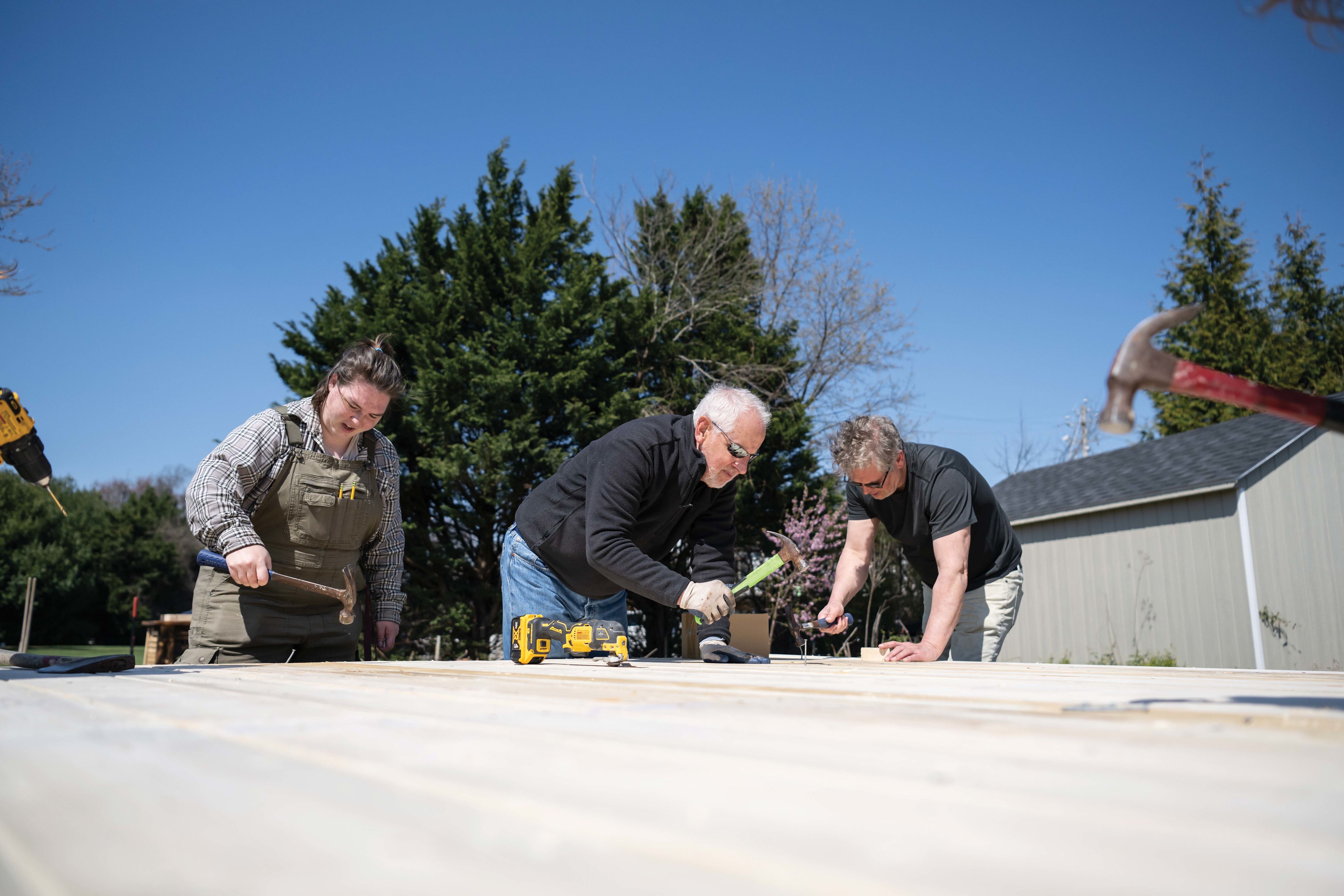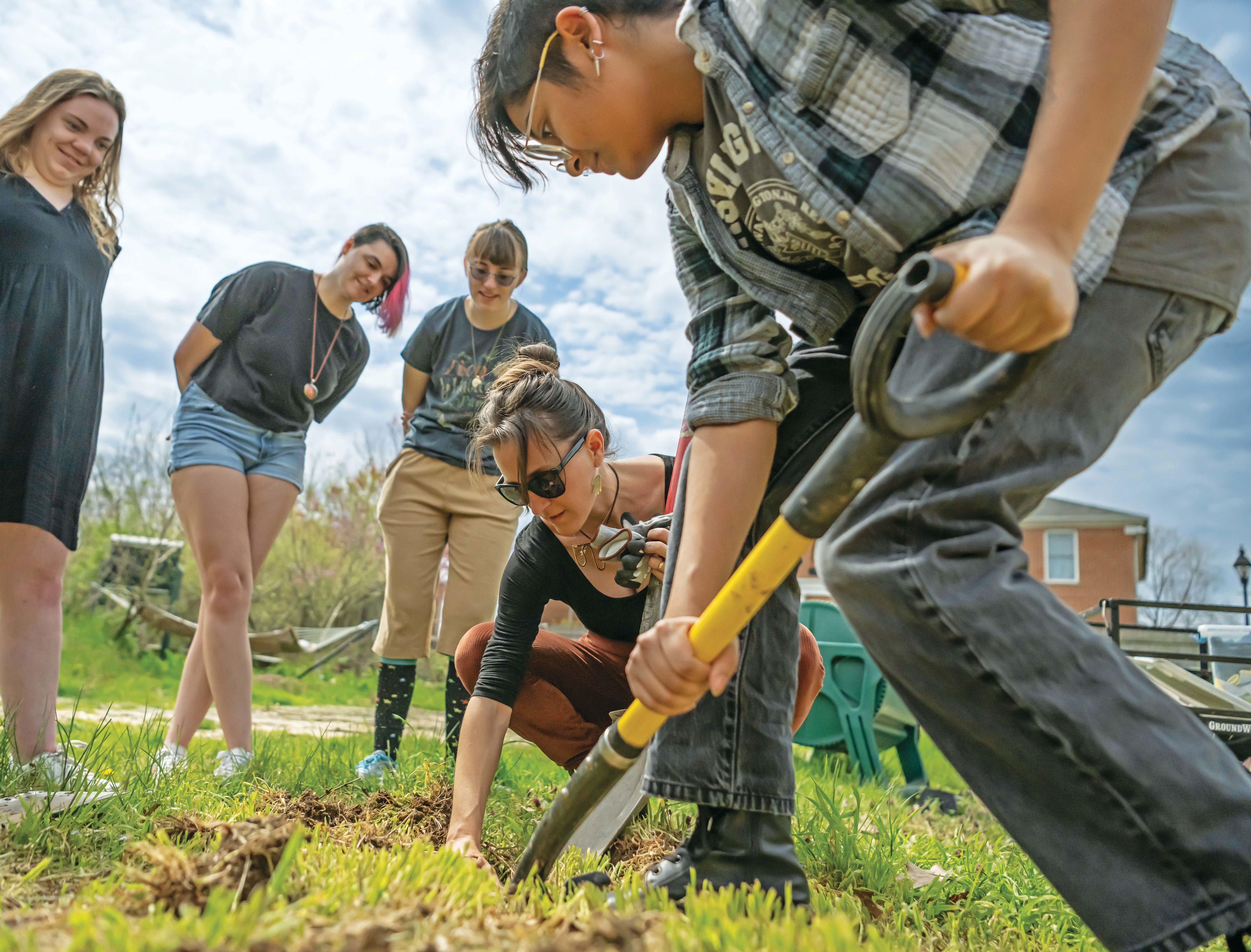Planting Chaucer’s Garden
Collaboration among English professor, undergraduate students, and lifelong learners creates a new poetry garden as part of first-of-its-kind course.

On the porch of the Washington College Rose O’Neill Literary House, students from late teens to grandparents and even great-grandparents are talking through theO depiction of the natural world in Geoffrey Chaucer’s Parliament of Fowls. For the first time, Washington College Academy of Lifelong Learning (WC-ALL) students—typically local community members—and full-time undergraduate students are learning together. Courtney Rydel, chair of the English department, is piloting this hybrid class.
Rydel, the College’s resident Chaucer expert, invited WC-ALL students to attend four of her classes. As well as reading and analyzing Chaucer in the original Middle English, students were asked to discuss the flora in The Canterbury Tales—a collection of 24 stories narrated by pilgrims traveling from London to a shrine in Canterbury. This highlighted Chaucer’s skill as a naturalist, incorporated the lifelong learners’ knowledge of plants and nature, and each undergraduate student chose a plant that appears in the text to cultivate.
Shane Brill ’03 M’11, who oversees WC-ALL and the Campus Garden, dedicated a space where students could develop a poetry garden over the course of the semester. The first round of seedlings planted by the undergraduates included medlar, willow, fig, garlic, saffron, marigold, briar, licorice, daisy, rose, and calendula.
The first round of seedlings planted by the undergraduates included medlar, willow, fig, garlic, saffron, marigold, briar, licorice, daisy, rose, and calendula.
“I was a little nervous about this experiment,” Rydel said. “I wanted to design a course where the lifelong learners could add something from their own experiences and get something out of the class without needing to have read the entire Canterbury Tales. At the same time, I wanted my Chaucerian students to have pride in their own expertise by the end of the semester. The focus on plants and nature ensured both groups felt like they had something to contribute and that they were getting something unique out of encounters with each other.”
When Rydel presented Chaucer’s Parliament of Fowls, she gave the students another way to connect. After discussing the text, lifelong learners spoke about their knowledge of birds and nature, and the undergraduates presented the plants they were researching and planning to add to the poetry garden.
At the end of the semester, “the Chaucerians commented on how they felt like they formed a community in this class, and that’s everything I want,” Rydel said. “They understood that that’s the point of The Canterbury Tales, that Chaucer is interested in the struggles and the experiments that go into forming a community.”
The culminating session with lifelong learners and Chaucerians was a celebration at the poetry garden on Reading Day at the end of the spring semester.

